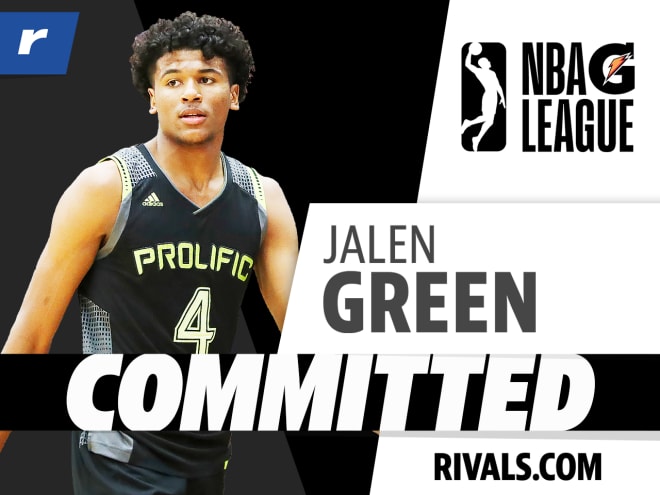
Jalen Green has recently dominated the near-barren sports media dialogue, as he made an unprecedented decision during this unprecedented time. The 18-year-old high school basketball phenom announced through an Instagram live stream that he will take his talents to the National Basketball Association’s (NBA) G League. Green elected to take this unique developmental path over the traditional route of playing college basketball for the National Collegiate Athletic Association (NCAA). Many have commended him for traveling the road not taken, paying figurative homage to Robert Frost. However, past activity and relations between numerous figures implicated in Green’s decision raise the question of whether this road was muddy.
Before exploring the relations in question, it lends a hand to probe the celebrity of Jalen Green to demonstrate the significance of his decision. Green is a 6-foot-5 shooting guard from Fresno, California, ranked by ESPN as the #1 basketball recruit in the country. Scouts tagged Green with a remarkable 97 rating out of the 100 available points in their scoring system. For reference, Zion Williamson carried a 96 rating in 2018 before committing to Duke. Green received scholarship offers from 20 different colleges across the nation and made official visits to four of them. He was named to both the McDonald’s All-American and Jordan Brand Classic prestigious high school games. Additionally, the Filipino-American was named the Most Valuable Player of the FIBA Under-17 World Cup in 2018, as Green represented the United States. With that, it is self-evident that Jalen Green had the freedom to choose to play the game of basketball for virtually any team in the world, excluding those in the NBA. Yet, he passed up the opportunity to play for college basketball blue bloods such as Kansas and Kentucky, an opportunity scores of young hoopers only dream of. Instead, Green elected to play in the NBA G League, a league that players typically only see when they are deemed unfit for the highest level of competition. After all, the league was formerly named the D-League, as in “Developmental League.” (The current G stands for Gatorade, hello sponsors).
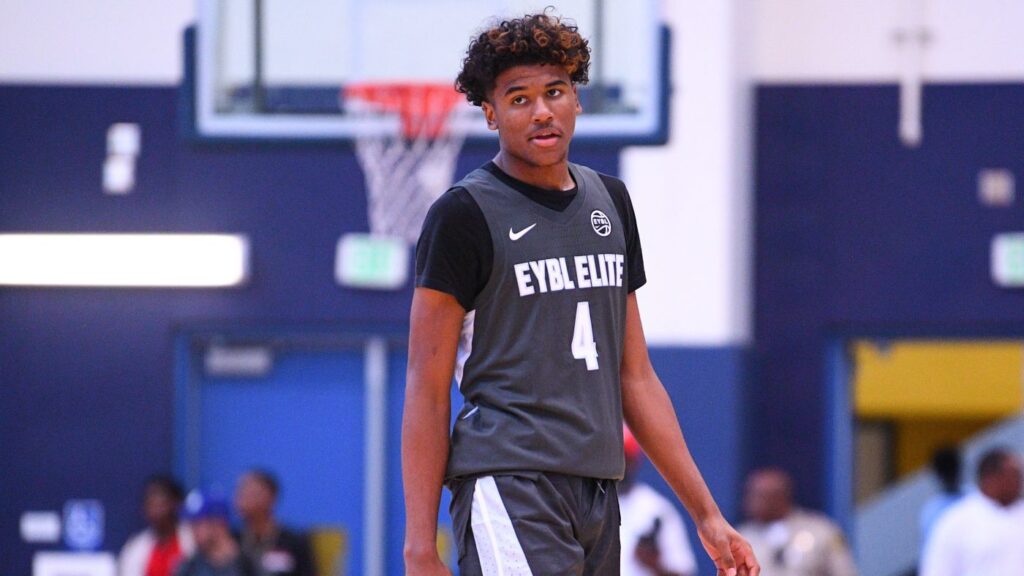
High school sensations who long precede Jalen Green, such as LeBron James and the late, great Kobe Bryant once had the option to enter the NBA draft straight out of high school. That option was abolished in the 2005 collective bargaining agreement (CBA), negotiated between the NBA and its Players’ Association (NBPA). Article X of the CBA dictates that in order for an American player to be draft eligible, he must be at least 19 years old, and at least one NBA season must have elapsed since when he graduated from high school or, if he didn’t graduate, when he would have graduated. This eligibility requirement is famously nicknamed the “one and done rule.” Top high school players, such as the aforementioned Zion Williamson, have routinely spent just one year playing college basketball before departing for the greener pastures of the NBA. Deficiencies in this system have recently come to light and been challenged. Many top athletes coming out of high school are mere teenagers; nonetheless, they often possess immense earning capabilities at that ripe age. Contrasting with this capability are NCAA regulations forbidding its student-athletes from earning a salary or profiting off of their valuable name, image, and likeness (NIL). As prospects have begun to better understand this inequity and contemplate their earning potentials, some have avoided the NCAA and its financial handicaps altogether.
Two highly ranked recruits in the 2019 class, LaMelo Ball and R.J. Hampton (pictured below), made the trailblazing decision to play in the National Basketball League (NBL) in Australia to fulfill the NBA’s eligibility requirement. While Ball comes from a position of wealth, he demonstrated the financial freedom available to those who opt-out of the collegiate model when he reportedly purchased the Illawarra Hawks franchise, who he had played for in Australia. The current NBA CBA expires in March 2021 and Jalen Green is the latest youngster to compel the NBA to reconsider its “one and done rule.” Additionally, the NCAA will likely have internal discussions regarding its strict and limiting NIL position.
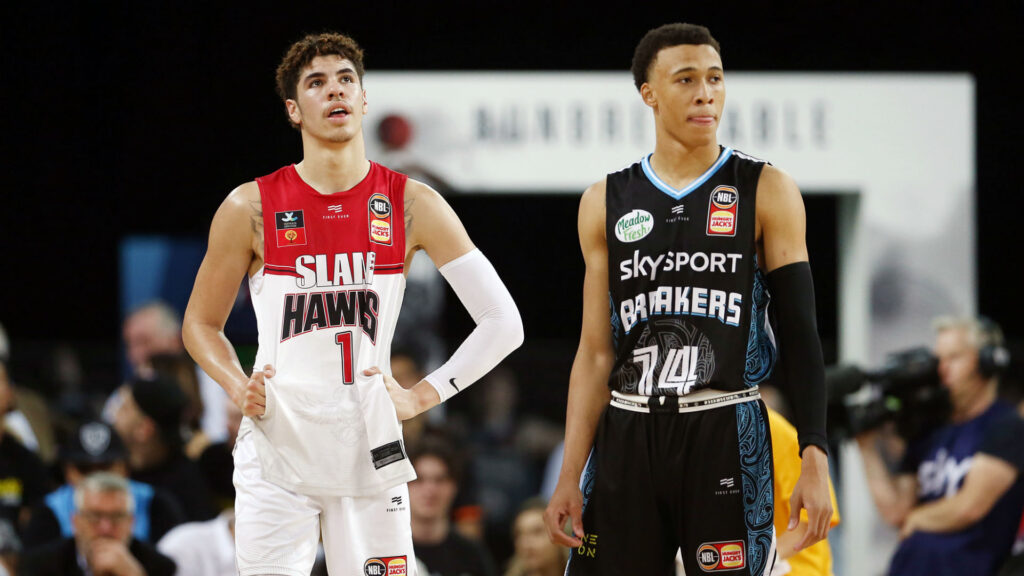
Fresno native (like Green) Chris Haynes of Yahoo Sports, reported that Jalen Green has hired agent Aaron Goodwin and will receive a “substantial six-figure deal to partner with the G League for a year before entering the 2021 NBA draft.” Sources have said this deal will likely award Green over $500,000 with endorsement opportunities considered. Goodwin, founder of Goodwin Sports Management has represented the last two No. 1 picks to make the leap from high school to the NBA: LeBron James and Dwight Howard. On paper, Goodwin looks like a reasonable candidate for Green to hire. When you take an in-depth look into Goodwin’s dealings, however, it seems a little too fitting and raises alarming questions.
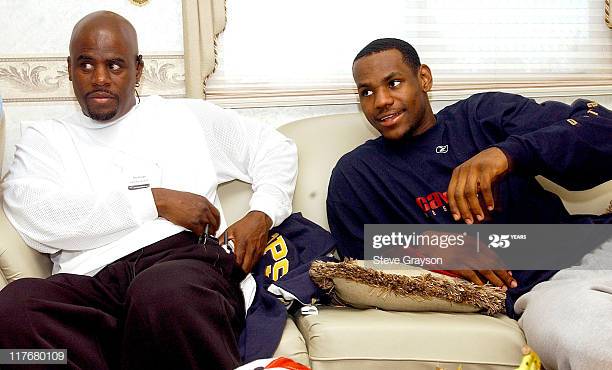
Goodwin represented and still works closely with the current President of the NBA G League: Shareef Abdur-Rahim. Abdur-Rahim is a former NBA player who was named to his current role in December of 2018. He previously worked for the Sacramento Kings and studied at both UC Berkley and USC. Aaron Goodwin is from Oakland, California. Tying together this Southern California pattern, Jalen Green will headline a new G League team located in Los Angeles. Haynes explained, this “developmental team concept, spearheaded by G League president Shareef Abdur-Rahim, has been in the works for a few years.” “The select team will play a reduced schedule of about 20 games, which is much fewer than the league’s 50-game schedule. Agent Aaron Goodwin introduced this opportunity to the [Green] family and is advising them during the process.”
Shareef’s brother, Muhammad Abdur-Rahim, previously worked as an independent contractor for Aaron and Goodwin Sports Management, working to recruit new clients. Now, Muhammad is the plaintiff in a civil suit against Goodwin and his agency. Muhammad sued, claiming breach of a severance agreement and intentional infliction of emotional distress. He filed the complaint in California state court, seeking $570,000 as well as exemplary and punitive damages. Muhammad alleges that Goodwin contractually agreed to pay him five installments of $15,000 for his services and has since failed to make all but one. Abdur-Rahim subsequently filed suit and did not hold back from including disparaging language in his complaint. “The Defendants’ [Goodwin Sports Management] poor reputation and failure to service clients adequately made it very difficult for the Plaintiff [Muhammad] to sign clients.” The case is still active today, being heard in the California Superior Court of Alameda. Simultaneously, Goodwin and Muhammad’s brother Shareef worked together to recruit the most highly touted prospect in G League history. Was this tough brotherly love or is there more going on behind the scenes?
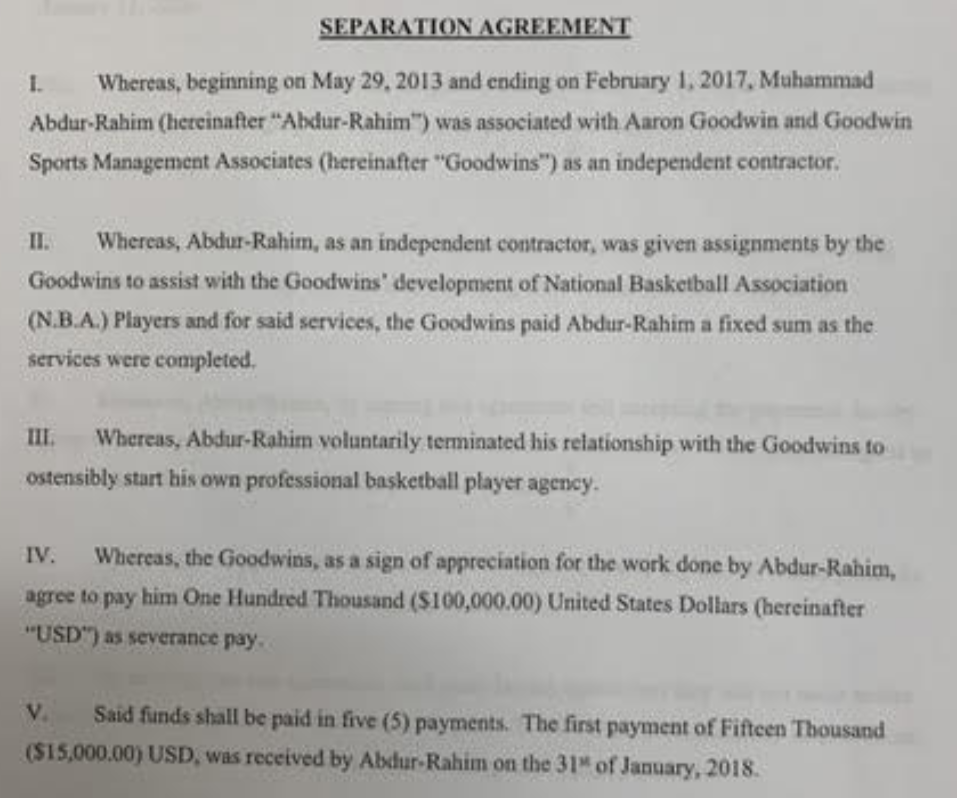
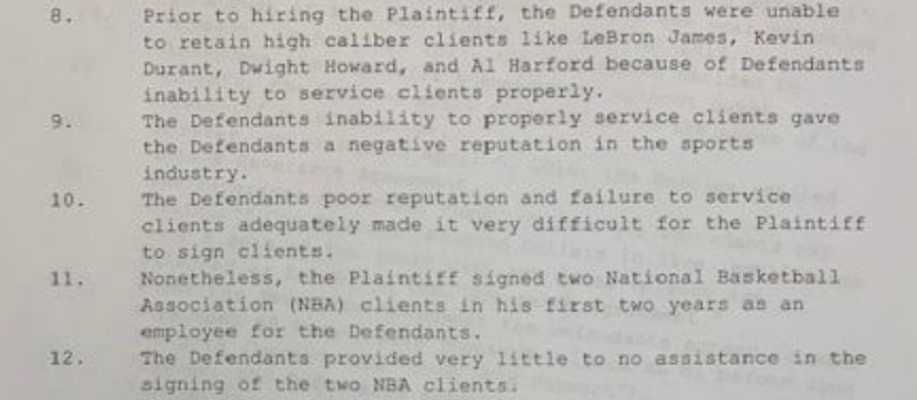
The lawsuits don’t end there for Aaron Goodwin. According to Liz Mullen of Sports Business Journal, a British private equity firm named XXIII Capital Ltd. has sued Aaron Goodwin, his brother/business partner Eric Goodwin, et al. for defaulted loan payments. “Just over 18 months ago, Plaintiff [XXIII Capital] loaned Defendants millions of dollars so Defendants could launch their business,” the lawsuit states. “Now, Defendants hide, divert, secrete and improperly spend the very proceeds from which Defendants agreed Plaintiff would receive repayment,” the complaint alleges. The lawsuit is seeking actual damages of more than $22 million.
In consideration of the foregoing, it is curious why Jalen Green would sign with Aaron Goodwin for representation. Goodwin provided his rationale in a statement to Yahoo Sports. “I didn’t like the idea of high school kids going to play overseas to avoid the one-year post-high school needed to be eligible for the NBA draft. I began having conversations with Shareef and exploring ways the G League could become a vehicle to give elite high school players an avenue to develop their skills under NBA development coaches, play against NBA-level competition, all while getting the mentoring young men need to succeed on the NBA level. Jalen is the perfect young man to start this program.”
“It’s going to be a lot of pressure, but at the same time, I think I’ll handle it well,” Green told Yahoo Sports. “I’ve been handling the attention since the ninth grade, so I’m pretty used to it. I got a small circle that keeps my head right. I think I’ll be fine. Hopefully, everything goes right so players can take this route in the future,” said Green. Among that small circle is Isaiah Todd, the #13 ranked prospect who recently de-committed from the University of Michigan to join forces with Green in SoCal and play for the new G League team.
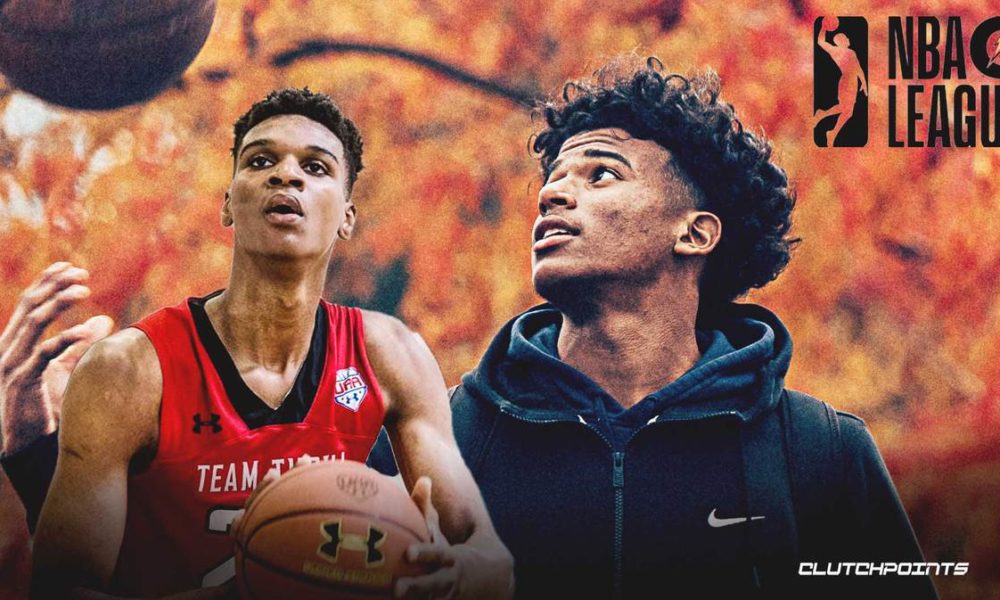
Ultimately, this alternative opportunity for young basketball players is a good thing. The NCAA has held all of the bargaining power and has arguably abused that power. Now, NCAA President Mark Emmert and his colleagues may be forced to adapt and change their thinking to match the desires of those who make college basketball so great: the student-athletes. As Louisville Head Coach Chris Mack alluded to, college basketball will survive without some of the nation’s top-ranked prospects. However, it’s time to give young men (and women) like Jalen Green the opportunity to play the great game of college basketball without acting as a servant to it. 18-year-olds want to go to college and profit off of their talent and hard work; these must not be mutually exclusive to avoid situations like the one Jalen Green faced.